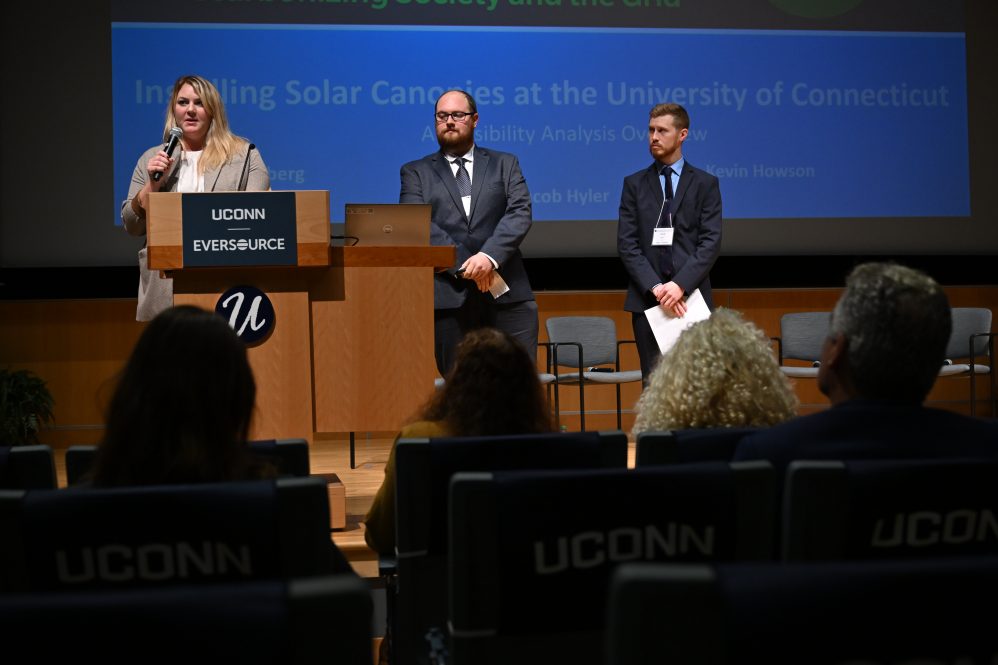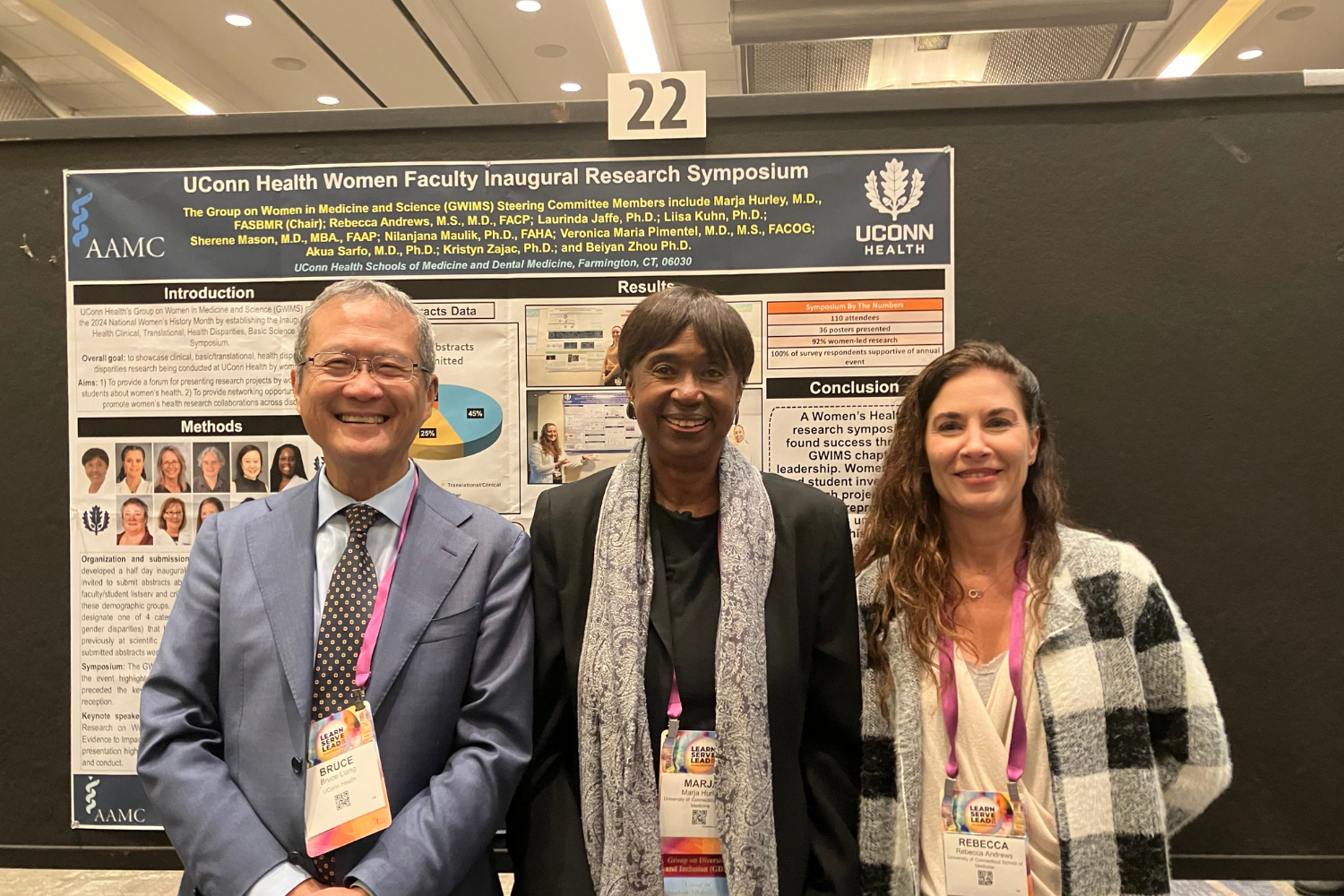Connecticut Gov. Ned Lamont, University President Radenka Maric and former White House Climate Advisor Gina McCarthy all agree that decarbonizing our electrical grid is an opportunity to create a more prosperous future.
The three, along with other government, municipal, and industry leaders, spoke at the inaugural Sustainable Clean Energy Summit, hosted Oct. 4 by UConn and Eversource in the Student Union. Lamont set the stage by discussing all the state’s strengths in green energy, and its major challenge: convincing its citizens that investments in clean energy, a sustainable grid and transit will pay off.
“‘I’m all in favor of a green future, but not if it costs me a dime’ — we have to work on that” sentiment, and sell the vision of a cleaner economy to our fellow citizens, Lamont said.
The University president had an answer for that: lead by example.

“Make no mistake – UConn is going to hit its decarbonization goals and become a national leader in sustainable clean energy research and education,” Maric said. UConn has pledged to become carbon neutral by 2030. The University has taken significant steps toward that goal already, including installing hydrogen fuel cells, enhancing efficiency of the onsite cogeneration power plant, and diverting food waste into compost and renewable energy production.
UConn students have also taken up the decarbonization challenge. Six teams chosen for funding by the Clean Energy & Sustainability Innovation Program in June presented brief overviews of their work at the summit. The teams had spent the summer devising ways to reduce the University’s carbon footprint, foster environmental justice and prepare for climate extremes. Those teams presented brief overviews of their work at the summit and the winning team was announced: Austin Gelinas ’25 (ENG) and Pranavi Rebala ’25 (CLAS) proposed a two-part strategy to reduce the New England grid’s heavy reliance on natural gas, using UConn as an example in their winning project “Enhancing Connecticut’s Green Economy: Comprehensive Short and Long-Term Approach to Renewable Energy Transition.”
President Maric praised the interdisciplinary nature of the work students have done on this and announced a new goal, to create an academic unit dedicated to sustainability. She said the University is looking for industry and government support to build this unit, similar to the partnership UConn has with Eversource.

Gina McCarthy, the former White House Climate Advisor and keynote speaker at the summit, praised UConn’s partnership with Eversource, and the advantages it gives to UConn students and researchers who work with Eversource on projects related to climate and grid sustainability.
“I don’t want you to think you’re going into a world of disaster. I want you to see this as a world of change,” McCarthy said, addressing the students in the room. “Climate change is the biggest opportunity of our future…the benefits of a clean energy future are simply enormous,” including good jobs, a cleaner environment, and a more prosperous country overall. She noted that the federal Inflation Reduction Act, made law in 2022, was specifically designed to incentivize renewable energy projects and has been very successful.
U.S. Rep. Joe Courtney, who represents Connecticut’s Second Congressional District in Washington, also mentioned the Inflation Reduction Act during a video call in to the summit. Courtney noted that private investment in infrastructure has increased much more than initially projected when the Inflation Reduction Act was passed. The private sector has announced more than $110 billion in clean energy manufacturing investments, according to the White House.

Such private investment has benefited Connecticut, which has a skilled workforce. A roundtable discussion on grid decarbonization that included executives from Eversource Energy and smart home developer Savant Systems, as well as the state Department of Energy & Environmental Protection, the Chamber of Commerce of Eastern Connecticut, and state Rep. Jamie Foster, emphasized the opportunities for UConn students and researchers to influence policy and engage in the state’s efforts to reduce reliance on greenhouse gases. Two other panels with Avangrid, Eversource Energy, CDT Energy, GE Appliances, Tesco Automation Solutions, Dominion Energy, HexStream and the state Department of Economic & Community Development discussed the numerous job opportunities available for students interested in clean energy and decarbonization of the grid.
As McCarthy, who has a long history of addressing climate change and energy working for many different administrations, including former Gov. Jodi Rell, said, “Good things can get done when people listen to each other, and talk about the future and the good things we can do.”



